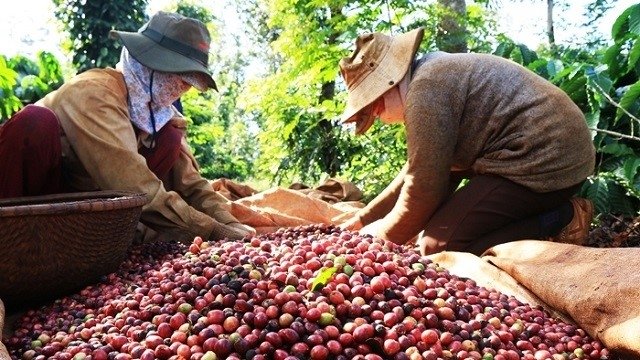



Multiple solutions are needed to improve the quality of Vietnamese
coffee.
According to the General Department of Customs, for the first nine months of 2018, Vietnam’s coffee exports reached over 1.4 million tonnes, valued at US$2.75 billion, up 18.8% in volume.
Germany and the US continued to be the two largest consumer markets for Vietnamese coffee in the first eight months of 2018, with market shares of 12.6% and 9.8%, respectively. Other markets with a sharp increase in the imports of Vietnamese coffee in the first eight months this year included Indonesia (+ 8 times), Russia (+ 66.6%) and Philippines (+ 46.6%).
However, global demand and coffee prices have a direct impact on domestic coffee prices. The average coffee export price in the Jan-Aug period was down 15.5% over the same period in 2017, reaching US$1,913 per tonne.
In September, unroasted robusta coffee in Vietnam’s Central Highlands decreased by VND700 a kg to VND31,900 - 32,500 per kg, compared with the previous month. During the first nine months of 2018, domestic coffee prices fluctuated sharply with the fall ranging from VND 2,100 - 2,400 a kg.
The fluctuations in the world market causing impacts on the domestic market are inevitable. However, experts have shown how to reduce these impacts to the maximum. Tran Van Hung, from Fair Trade Project in Vietnam, suggested that besides ensuring the quality of coffee, it is important to promote the participation of Vietnamese coffee in international certification on fair trade or sustainability, in order to have a stable coffee price in the world market and ensure an income for farmers.
"When these certificates are available, each price movement on the world market ensures that farmers are still able to sell their coffee at a minimum price. This price guarantees that farmers growing coffee will have profit to reinvest," Hung said.
Dao Duc Huan, Director at the Centre for Rural Development (under the Institute of Policy and Strategy for Agriculture and Rural Development), said that in the face of market demand, it is necessary to promote advantages and determine the appropriate strategy and long-term approach for Vietnamese coffee to affirm its role and position. In particular, building a high-quality Vietnamese coffee brand is an important solution and is the basis for promoting effective and sustainable value chains for Vietnamese coffee products in the future.